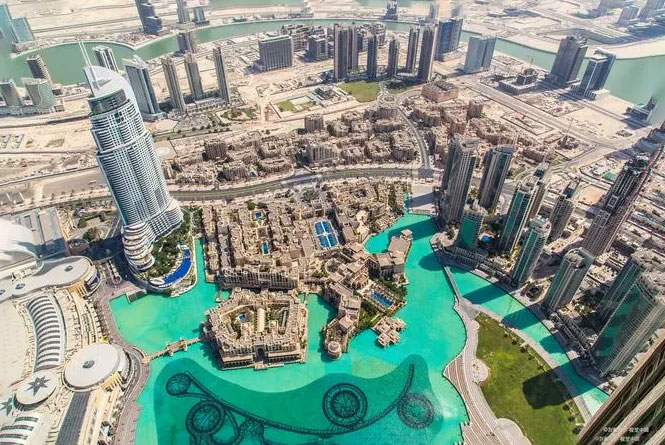Dubai's flexible company registration policy as the business heart of the MENA region is one of the key advantages to attract global investors. The answer to whether a registered company needs to meet the minimum number of shareholders is yes, but the requirement is not a uniform standard, but varies significantly according to the company's registration area (free zone, home area) and specific company type. A clear grasp of the minimum number of shareholders in different scenarios is the basis for investors to build a corporate structure and conduct business smoothly, and the following will be a detailed analysis of the mainstream registration model and company type.

the Dubai government provides a legal framework for non-resident registered companies through the dual guarantee of federal law and local policy. The UAE Federal Companies Act, as amended in 2021, explicitly allows non-residents to set up businesses in Dubai, and foreign ownership restrictions have been removed in most industries. In 2025, the new policy further relaxed the conditions and launched the "single free trade zone passport" system, which allows enterprises to obtain the operation authority of multiple free trade zones through a unified platform after registering in any free trade zone, covering 29 free trade zones including Dubai multi commodity center (DMCC) and Dubai International Financial Center (DIFC). This policy not only simplifies the registration process, but also saves companies about 60% of compliance costs, reducing the cross-regional licensing process from 45 days to 72 hours.
there are three main types of non-resident companies registered in Dubai, each of which differs in terms of shareholding structure, tax policy and scope of business:
Free Zone Company
the free zone is an exclusive economic zone set up by Dubai to attract foreign investment, allowing 100 percent foreign ownership and enjoying zero corporate income tax, zero tariffs and personal income tax exemptions. For example, the DMCC Free Zone focuses on trade and cryptocurrencies, while the DIFC is a financial and legal center. Free zone companies are required to meet "physical operations" requirements, including leasing physical offices or using Flexi Desk (shared office space) and hiring a certain percentage of local employees (some industry exemptions). Such companies are suitable for asset-light businesses such as cross-border e-commerce, technology services and international re-export trade, but they cannot directly connect to the local UAE market and need to expand their business through distributors or registered Mainland branches.
Local Company (Mainland Company)
local companies are regulated by the Dubai Economy and Tourism Board (DET) and are required to have a valid business address and register through the Ejari system. Under the 2025 rules, non-residents are already allowed 100 per cent in most industries, but oil and energy, security, selected media and financial businesses still require local partners. Local companies can directly participate in local market tenders, retail and public service projects, but they are subject to corporate income tax (9% for annual income exceeding 375000 dirhams). These companies are suitable for companies that need to be deeply integrated into the local supply chain, such as construction, logistics and offline retail.
Offshore Company (Offshore Company)
Offshore companies such as JAFZA Offshore or RAK ICC, which are mainly used for asset holding, holding platforms and estate planning, are not allowed to carry out business activities locally or apply for residence visas. Its advantages are full tax exemption, information confidentiality and low maintenance costs, but subject to strict audit requirements and substantive certification. Such companies are suitable for multinational companies to set up regional headquarters or high net worth individuals for wealth management.
taking a free zone company as an example, the core process for non-residents to register a Dubai company is as follows:
prophase decision
determine the type of business: select the free zone according to the characteristics of the industry (e. g. Dubai Internet City for technology companies and DMCC for trading companies).
Prepare company name: Submit 3 alternative English names, avoiding sensitive words such as "Emirates" and "Bank.
Confirmation of registered capital: Most free zones have no minimum capital requirements, but industries such as finance and real estate may require higher capital.
Document preparation
copy of shareholder's passport (notarized).
Business plan in English (specifying business model, target market and budget).
Proof of bank creditworthiness (some free zone requirements).
Proof of office address (Flexi Desk contract or physical office lease agreement).
Online application and approval
submit the application through the official platform of the free zone, upload the documents and pay the establishment fee.
The approval cycle is usually 5-7 working days, during which supplementary materials may be requested.
Zhuoxin Enterprise provides agency services such as domestic and foreign company registration, bank account opening, annual tax return, agency bookkeeping, trademark registration, ODI Overseas Investment Filing, etc. If you have any business needs in this area, please feel free to consult our online customer service!










Zhuoxin Consulting relies on its Chinese service network and Dubai executive team to provide professional one-stop business services without communication barriers for Chinese companies to enter the Middle East market. Its business covers company establishment and maintenance, accounting and taxation, bank account opening, PRO services and business services.
Zhuoxin Consulting has high-quality business resources and maintains close cooperation with many free zones, bankers and tax departments in the UAE to escort your expansion in the Middle East market.
厦门卓信世野信息咨询有限公司 地址:厦门市思明区厦禾路189号银行中心2712B单元
免责声明:本网站与任何政府机构均无关联,我们提供第三方咨询和公司注册支持。